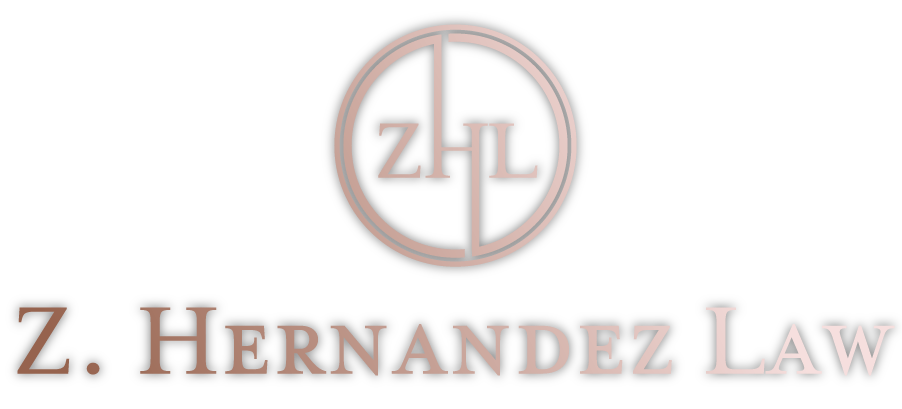When considering bankruptcy, many debtors wonder how this process will affect their property and what they can do to protect those assets. Florida bankruptcy exemptions are laws that protect you from losing your property to creditors.
There are many factors you should consider when filing for bankruptcy in Florida. One of them is ensuring that you and your assets are adequately protected. For that reason, you must get familiar with these exemptions.
In this article, you will find key information about:
Handling your property and using the exemptions correctly can be challenging. If you file your case without an attorney and do not claim the right exemptions, you run the risk of losing your property. At Z. Hernandez Law, we fight to protect your assets. Contact us today to schedule a consultation with a bankruptcy lawyer.
What Is a Bankruptcy Exemption?
Florida’s bankruptcy exemptions are laws that protect a certain amount of property in order to assist in providing debtors with a fresh financial start. Because they offer protection from losing your assets to creditors in a bankruptcy case, exemptions are usually associated with Chapter 7 cases.
When filing Chapter 7 in Florida, debtors’ assets come into the bankruptcy estate, which the trustee may sell to repay creditors. However, claiming eligible exemptions allows debtors to protect and, in most cases, keep all of their property.
A no-asset case arises when all property is protected and cannot be sold. Any assets that are not protected are available for liquidation, this is known as an asset case. In other words, the more property exemptions protect, the fewer proceeds there would be to distribute among creditors.
Exemptions are generous tools to give the honest debtor a fresh start after a bankruptcy. In fact, the American Bankruptcy Institute estimates that 96% of Chapter 7 cases are no-asset cases. This is because exemptions are meant to protect property from the bankruptcy process.
In a Florida Chapter 7 bankruptcy case, exemptions allow you to keep your property. However, in Chapter 13 bankruptcy, these protections help you determine your monthly payments and, potentially, reduce the installments associated with a certain asset.
Example of bankruptcy exemptions in a case
When filing for Chapter 7, John’s car loan amounts to $6,000. Under Florida motor vehicle exemption, John is allowed to exempt $1,000. As a result, the car represents $5,000 in non-protected property ($6,000 minus the $1,000 exemptions). In this case, John can surrender the car for sale, or he may decide to keep it and pay the remaining balance.
If John files for Chapter 13, the motor vehicle exemption will determine how much he would pay for his car loan debt. So, if he claims his exemption, this total debt will be $5,000, which he may split throughout his repayment plan. If he has a 60-month repayment plan, John’s monthly payments for his car may amount to over $83.
If you are considering bankruptcy and unsure how these exemptions can help you protect your property, you should seek legal advice immediately. Contact us today to book a consultation.
Bankruptcy Exemptions in Florida: What Is Exempt & Protected?
Florida Chapter 222 contains the exemptions available to Florida residents. These exemptions allow debtors to exempt a certain amount of value for eligible properties.
Florida bankruptcy exemptions include, but are not limited to:
- Homestead exemption: unlimited equity
- $4,000 for personal property (wildcard exemptions)
- $1,000 for a motor vehicle
- $750 a week in wages for the head of the family
- 401(k) plans
- Disability benefits and income
- Qualified hurricane, medical, and education saving accounts
- Social security benefits
- Veteran benefits
- Cash surrender for life insurance
- Unemployment compensation
- Alimony or support
When filing for bankruptcy in Florida, debtors must list their property and its debts. According to Florida Section 222.29, if you purposely transfer or hide an asset, you may not be able to claim an exemption.
For instance, In re Asunmaa, debtors could not exempt $20,000 they deposited in a retirement account (Roth IRA) because the trustee found that they opened the Roth IRA account with the intent to hide the money and defraud their creditors.
Even though exemptions protect these retirement accounts, the debtors, in this case, lost their right to claim this bankruptcy exemption and, with it, their money.
Florida Bankruptcy Exemptions Laws
Florida’s exemptions are generous although they exclude federal exemptions available. However, if you want to claim them, there are certain laws you must keep in mind:
- Florida residents are only allowed to use state exemptions.
- To meet the residency requirement, a debtor must have lived in Florida for the last two years (730 days) before filing for bankruptcy.
- To use the Florida homestead exemption, the real estate should not be larger than half an acre if it is located within a municipality, or 160 acres if it is outside.
- The wildcard exemption is only available if the debtor did not claim the home state exemption.
- Debtors are required to file a sworn statement to show that they have established domicile in Florida.
Florida Homestead Exemption
It is also important to note that the Florida’s homestead exemption is not only available for houses or apartments. According to Section 222.05, the homestead exemption applies to any dwelling house, including modular or mobile homes used as a residence and located on real property (land) you are entitled to use (through a rental or lease agreement).
In Miami Country Day School v. Bakst, Jackie Bakst had a judgment against her because she failed to pay tuition. To satisfy this debt, the school sought to levy on her houseboat. However, Mrs. Barks argued that her houseboat was protected under the Florida homestead exemption.
In addition to being her place of residence, the boat was:
- Not equipped with a motor
- Designed for residency (it had four bedrooms, three bathrooms, and a garden)
- Docked to a marina
Mrs. Bakst had a rental agreement with the marina, which provided her with hookups for water, electricity, and other utilities. Because it was proven that the houseboat was used for residential use rather than transportation, Mrs. Bakst was eligible for the homestead exemption.
Exercise Your Rights to Florida Exemptions – Speak to an Orlando Bankruptcy Lawyer
Bankruptcy is an adequate legal remedy that allows you to discharge outstanding debts. However, if you do not claim Florida bankruptcy exemptions, you run the risk of losing your property in the process. Since keeping your assets is part of a solid financial fresh start, you should enlist the help of a bankruptcy lawyer who is familiar with Florida laws and state exemptions.
Z. Hernandez Law is a Florida bankruptcy law firm representing clients filing for bankruptcy in the Orlando Court Division (Florida Middle District). If you are filing your case in Orange, Brevard, Lake, Seminole, Volusia, and Osceola counties, we may be able to help you. Call (407) 900-8490 or send us a message to book a consultation. Bankruptcy attorney Zarina Hernandez represents both English and Spanish-speaking clients.



